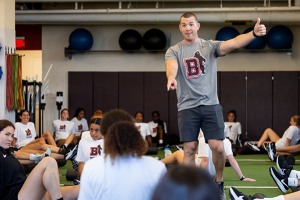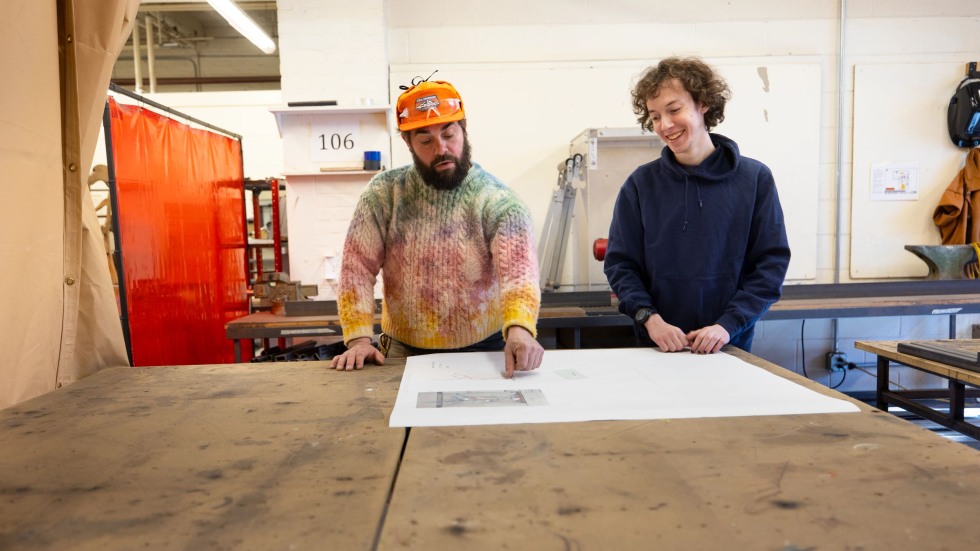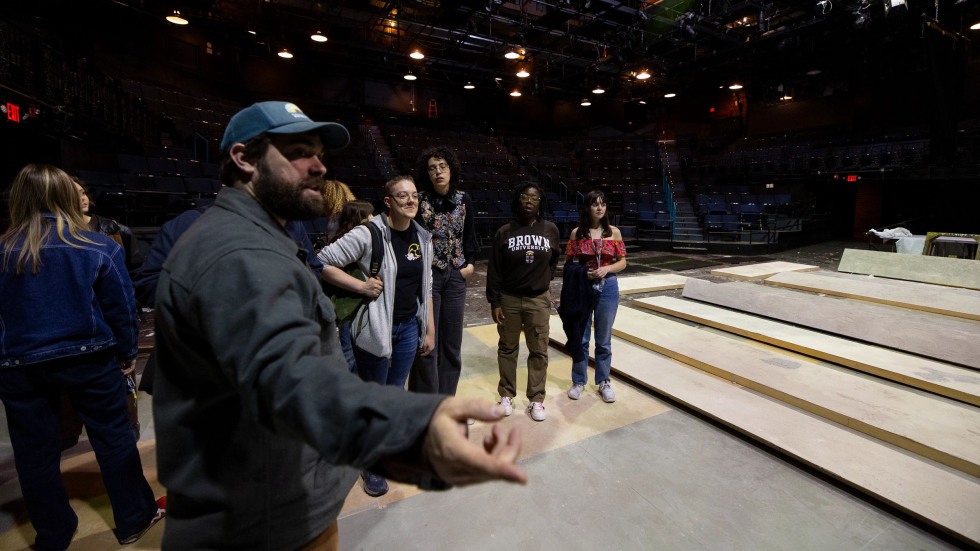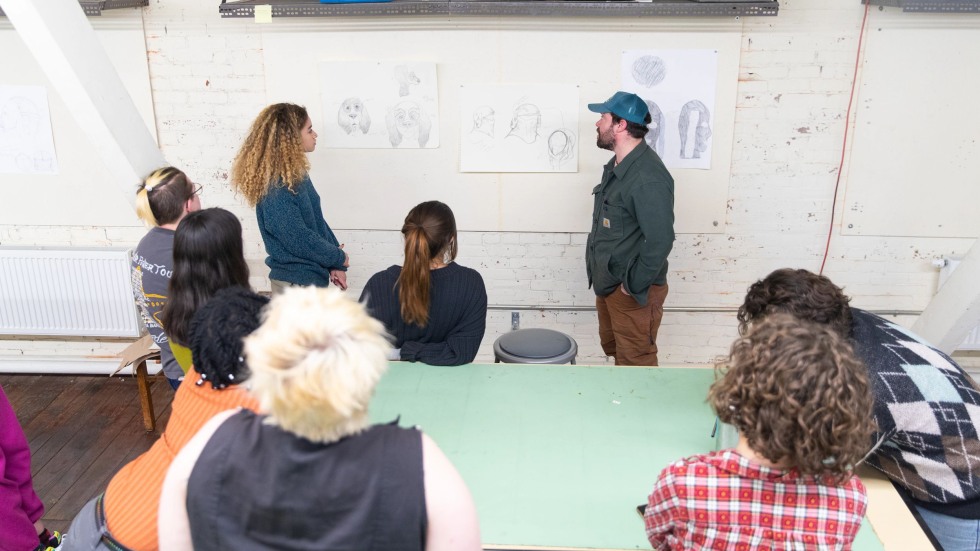PROVIDENCE, R.I. [Brown University] — During his college years, Alexander Haynes followed his heart to pursue a creative career path, never imagining that it would eventually lead him to a position at Brown helping others bring their own creative ideas to life.
As the technical director of Brown’s John Street Studio, Haynes oversees the Department of Theatre Arts and Performance Studies workspace, which includes a design studio, a wood/metal shop, drafting tables, painting spaces and a sewing lab — all for the purpose of creating sets for performing arts productions. He also mentors student theater groups that frequent the space, helping them with pricing and constructing their set designs, and teaches a spring semester course, Scenic Properties and the Props Artisan.
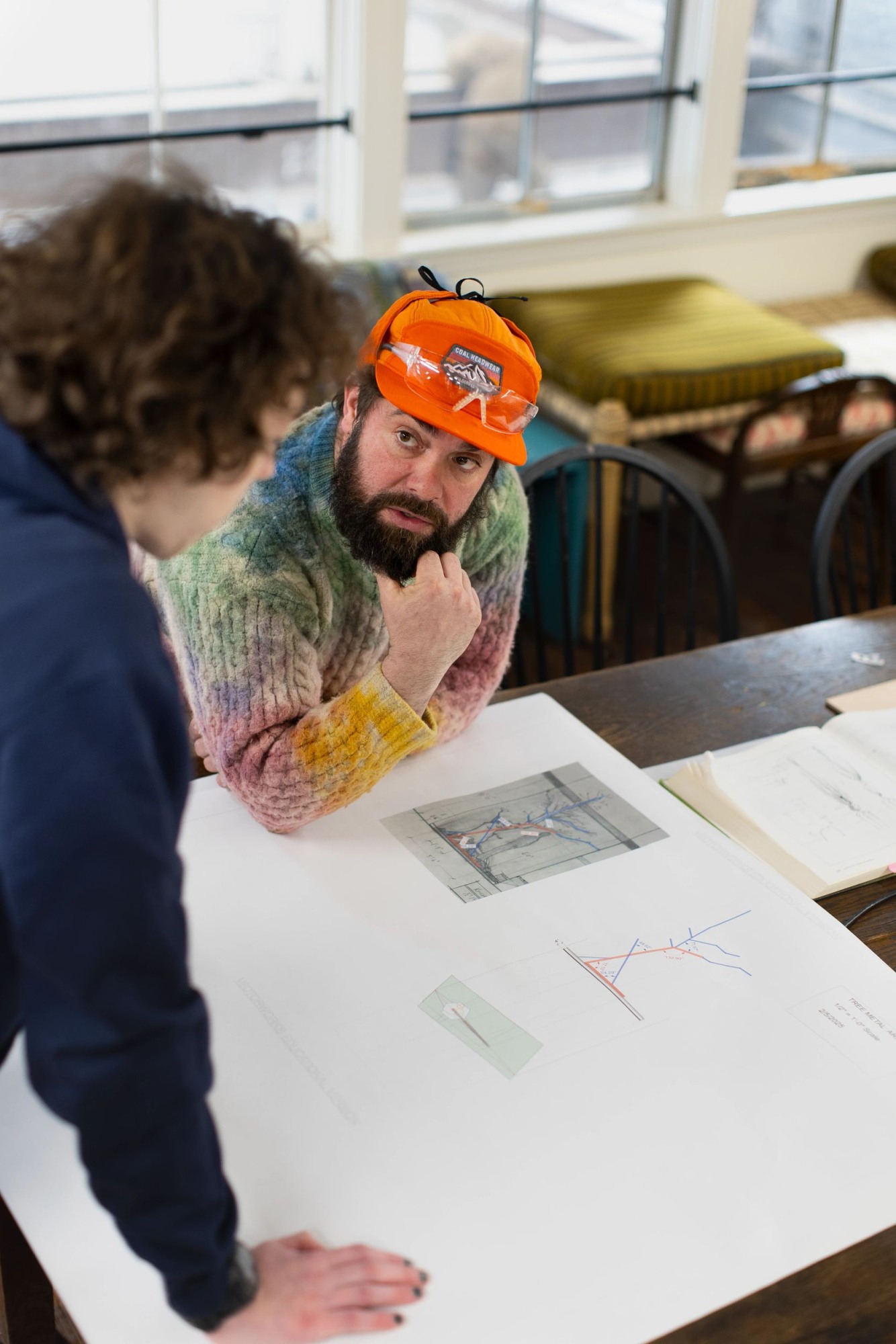
“Through my job at Brown, I get to be part of something way bigger than me through working in theater, and it also affords me the stability I need to have a family, which is something I always knew I wanted,” said Haynes, who lives in Foster with his wife, Lauren, and two children, Harper, 11, and Remy, 7.
In this Q&A, the native Rhode Islander reflects on his love of theater, his role at Brown and the thrill of supporting students at John Street Studio.
Q: What led you to a career in theater?
It all started when I was in a fifth-grade play at the Captain Isaac Paine Elementary School in Foster, Rhode Island, and I played the clown. Later, when it came time to choose to go to college, I said to my parents that I didn’t want a traditional job — I wanted to go into theater. My college experience at King’s College in Wilkes-Barre, Pennsylvania, was terrific. I acted in 15 out of the 16 plays produced during my four years there. I built scenery for every production. I hung lights for every production. I worked in the box office and stage managed. I’m the son of two hard-working individuals: a cabinet maker and a home economics instructor, so in a way, I’m meant to be a theater technician. I use all of the skills I learned from my parents growing up.
Q: Why did you gravitate toward the technical, behind-the-scenes aspect of theater?
I love to put things together. And in theater, you never know what’s going to come up in terms of a challenge for what we’re trying to build. Maybe it’s a tree that the actors have to climb, for example. There’s a thought process that goes into it that’s creative and artistic, but at the same time there’s a safety element in technical theater. I love how theater involves so many people working on their area of expertise, and then it all comes together to make something that is so much bigger than that initial script on paper.
Q: What drew you to this role at Brown?
About 10 years ago, I was working at Trinity Repertory Company as a carpenter and was involved with the Brown/Trinity MFA programs through that job. When I found out about this job, I was already familiar with the John Street Studio space and thought it sounded like an excellent opportunity to do what I love every day. It also allowed me to drop some of my side gigs to focus on this role, which was great because my daughter was 1 at the time and I wanted to spend more time with her.
Q: What do you enjoy most about working with Brown students?
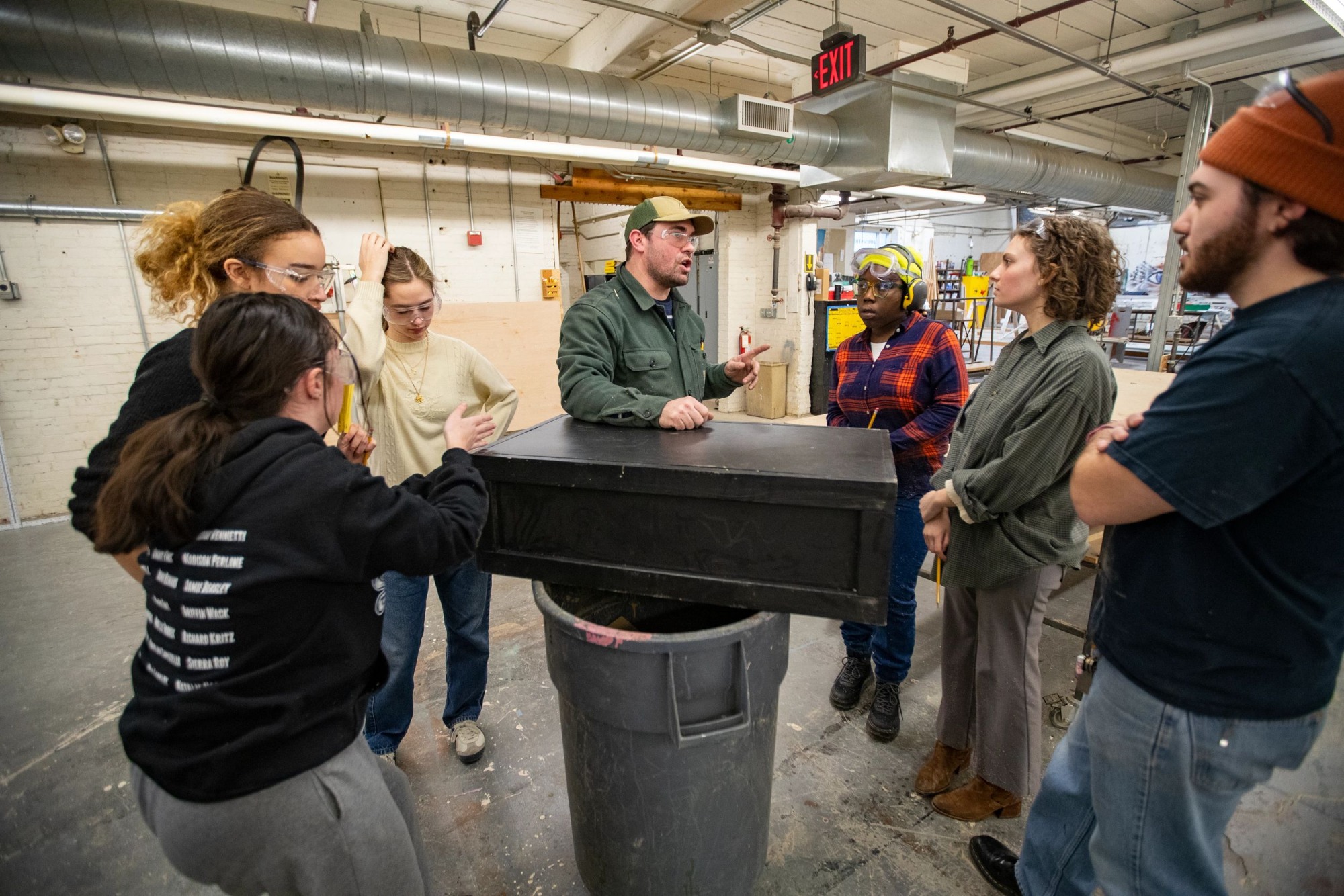
I enjoy seeing what students take away from their time working in the studio and how they apply it to other areas of study — not just within our department. Theater doesn’t just come out of a box, where you order something. You have to work to figure it out by asking questions, and it’s a big team effort, and I love seeing it unfold and supporting students as they figure it out.
Q: What opportunities has your employment at Brown allowed you to pursue outside of the University?
I’m in the process of wrapping up an online MFA program at the University of Idaho. Through Brown’s employee education program, the University pays for part of my tuition. It’s a win-win situation because I’m learning how to be a better teacher. I never planned to work in academia, but it’s worked out in a wonderful way.
